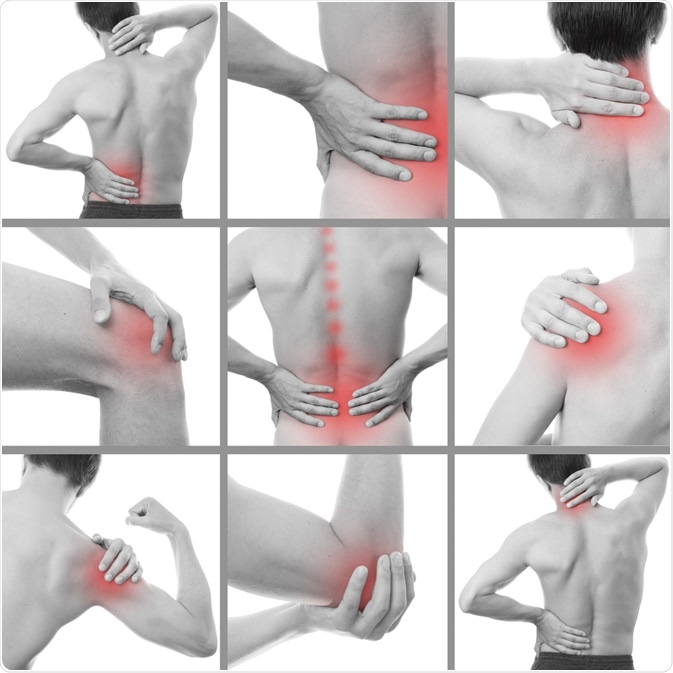There are two main types of pain, of which include nociceptive pain and neuropathic pain. Psychogenic pain is another term that is sometimes used to describe cases of pain, although this is not an official diagnostic term. Alternatively, pain can be classified according to the duration of the pain, as acute, chronic, or breakthrough pain.

Image Credit: staras / Shutterstock.com
Nociceptive pain
Nociceptive pain is caused by the activation of nociceptors in the body by noxious or potentially harmful stimuli. Activation of these receptors leads to an action potential and the propagation of nervous messages to the central nervous system and brain.
This type of pain is a normal response of the body to potential harm and serves to help protect from dangers that are encountered. It can be acute or chronic in nature, depending on the specific case and the cause of the pain. Nociceptive pain can be further classified into subtypes as somatic or visceral pain.
Somatic nociceptive pain originates from pain receptors located on the surface of the body or in the musculoskeletal tissues. This type of pain is usually localized to a certain area of the body and often worsens with activity; however, is typically relieved by periods of rest.
Visceral pain refers to pain that results from pain receptors located in the internal organs within a cavity of the body. This type of pain is usually described as a deep, pressure-like feeling that is not localized to a certain point in the body.
Neuropathic pain
Neuropathic pain is caused by injury to the nerves that are involved in the propagation of electrical signals that send messages of pain from the receptors to the brain. This type of pain is typically described as a sharp, shooting pain and is often more intense as compared to other types of pain.
There are various causes of nerve damage and resulting neuropathic pain, of which include certain infections, diabetes, and some surgical procedures.
Psychogenic pain
Psychogenic pain is another term that is sometimes used to describe pain. This is not an official diagnostic term for pain, but is sometimes used to describe pain that is associated with some degree of psychological disturbance. This may include anxiety, depression and/or stress that may be a consequence of or have a causative effect on the pain.
Acute, chronic, or breakthrough pain
In addition to nociceptive and neuropathic pain, an alternative method to classify the type of pain is by the duration of pain. By this classification, pain may be acute, chronic or breakthrough, as described below:
- Acute pain is a normal and temporary response that alerts the body to an injury. This type of pain can vary greatly in intensity; therefore, the need for and type of treatment must be determined on an individual basis.
- Chronic pain continues for longer than acute pain and is often defined as any pain in the body that lasts for 12 weeks or more. This type of pain can persist for extended periods of time without improvement or apparent utility for the body.
- Breakthrough pain refers to episodes of acute pain that occur when taking analgesic medication to manage chronic pain. This type of pain “breaks through” the effect of pain relief for a short period of time.
The terms acute, chronic and breakthrough pain are useful when describing different types of pain when clinicians are making decisions on a patient's treatment.
References
Further Reading
Last Updated: Sep 25, 2022